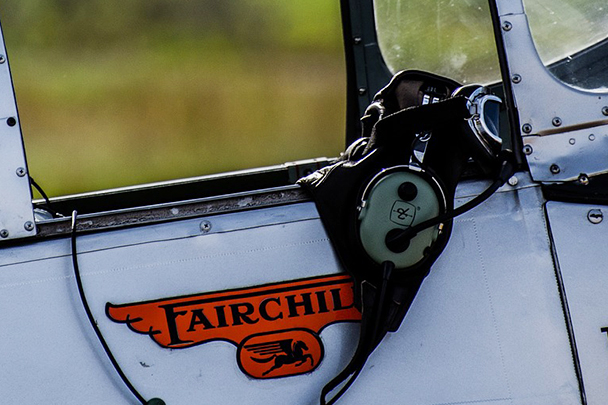
A: Have you done your runway inspection yet?
B: Well, I haven't finished it, but I'm doing it now.
Three Kinds of Verbs
1. Auxiliary Verbs: Be, Do, Have
These are used to change tenses or to make questions and negative sentences. Many teachers and students call auxiliary verbs “helping verbs” because they help the main verb of a sentence.

I don't like flying in cloud.

He has already seen the aircraft.

Are they departing now?
2. Modal Auxiliary Verbs: Can, Will, May, Should, etc.
These are similar to the auxiliary verbs be, do, and have because they help a main verb in a sentence. They are different because they each have a special meaning.
In the following examples, may means maybe, can't means impossible or unable, and should is asking for advice:

It may rain on our approach.

We can't get to the airport in five minutes.

Should I pay a landing fee at this airport?
3. Full Verbs: Go, Play, Sing, etc.
These are all the other verbs in the English language. We can also call these verbs the main verbs of a sentence. It is very important to realize that be, do, and have also have full verb meanings. In the following sentences, be, do, and have are full verbs and not auxiliary verbs:

I did my weather forecast last night.

Is he air sick today?

Let's have a flight together!

Review - Three Kinds of Verbs 1
Mark explains the different kinds of verbs
Now, let's look more at the auxiliary verbs be, do, and have:
Auxiliary Verbs: Do (do, does, did)
Do, does, or did are used in both Present Simple and Past Simple sentences to make questions and negative sentences. In positive sentences, the Present Simple or Past Simple do not use auxiliary verbs. In negative sentences and questions, the main verb takes the base form.
Present Simple:
- Negative: He doesn't have any airborne radios.
- Question: Do all aircraft land on the runway in the winter?
- Positive (no auxiliary verb): I always put landing gear down prior to landing.
Past Simple:
- Negative: It didn't snow on the runway.
- Question: Did you buy fuel yesterday?
- Positive (No auxiliary verb): I saw that executive jet three times last year.

Review - Three Kinds of Verbs 2
Mark explains the different kinds of verbs
Auxiliary Verbs: Be (am, is, are, was, were, been)
Continuous
be + (not) + verb-ing
Continuous sentences describe actions in progress or temporary activities. Please note the use of be even in positive sentences.
Present Continuous
- Positive: I am feeling much better today.
- Question: Are you coming to the airport tonight?
- Negative: We aren't doing anything in the cockpit at the moment.
Past Continuous
- Positive: They were flying an aircraft when it started to snow.
- Question: Was she calling the pilot at 10pm?
- Negative: The wind wasn't blowing across the runway then.
Passive
be + (not) + past participle
Passive sentences take the auxiliary verb be with a past participle.

Those headphones are made in China.
(Present Simple Passive)

The radar was invented in the 1930s.
(Past Simple Passive)

Has his aircraft been cleaned recently?
(Present Perfect Simple Passive)

Review - Three Kinds of Verbs 3
Mark explains the different kinds of verbs
Auxiliary Verbs: Have (have, has, had)
Perfect
Have + (not) + past participle
Perfect sentences take the auxiliary verb have with a past participle.

I haven't seen that airline.
(Present Perfect Simple)

They have been studying really hard for the radar exam.
(Present Perfect Continuous)

Had he eaten breakfast before flying to San Francisco Airport?
(Past Perfect)

Review - Three Kinds of Verbs 4
Mark explains the different kinds of verbs
Exercise
Open the exercise to begin the activity. Follow the instructions in the document.